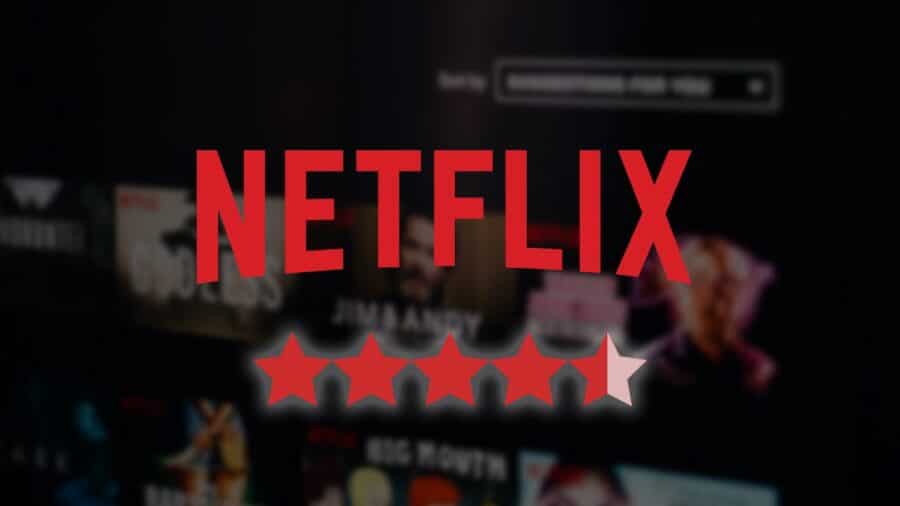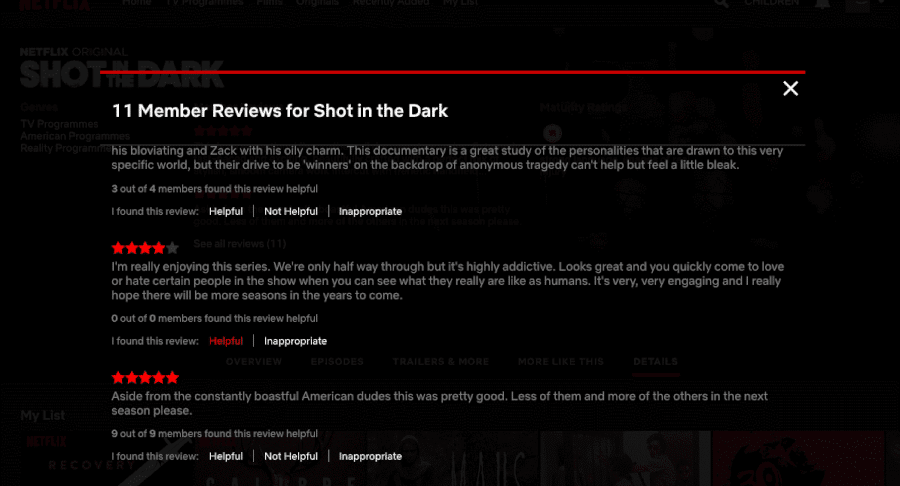
It’s been four years since Netflix swapped from its 5-star system to the thumbs up and thumbs down system. While it’s no longer the contentious subject it used to be, you may still question as to why Netflix replaced it. Was it because of Amy Schumer? The answer turns out to be no.
So why did Netflix actually change it? Well, it came down to engagement and results. According to Gibson Biddle, a former Netflix product manager who writes on his Substack titled Ask Gib, it came down to which method performed better in an A/B test.
His blog that looks back at Netflix’s history in personalizing your Netflix home screen states that they collected 5 billion star ratings by 2017. According to his insights, the thumbs system outperformed the 5-star rating saying “The result: the simpler thumbs system collected twice as many ratings.”
He also adds that a 5-star system can be too overwhelming of a question for users saying “When you require a member to parse between three, four, or five stars, you force them to think too much. They become confounded and move on to the next activity without rating a movie. Clicking thumbs up or down is much easier.”
The testing of a thumbs-up system began rolling out in 2016 as a test according to BusinessInsider with the eventual global rollout in early 2017.
At the time of the release of the thumbs up Todd Yellin, who continues to work at Netflix since he started at the company in 2006 told The Verge:
“Five stars feels very yesterday now. We’re spending many billions of dollars on the titles we’re producing and licensing, and with these big catalogs, that just adds a challenge. Bubbling up the stuff people actually want to watch is super important. What’s more powerful: you telling me you would give five stars to the documentary about unrest in the Ukraine; that you’d give three stars to the latest Adam Sandler movie; or that you’d watch the Adam Sandler movie 10 times more frequently?”
The thumbs-up system also notably came with the percentage system where algorithms would try and predict how likely you were to like a title. Based on personal usage, it’s unclear how effective this rating actually is.
It’s also worth noting that Netflix eventually went on to remove member reviews from the website too.

What did Amy Schumer have to do with the 5-star rating swap?
At the time, many automatically attributed the swap of the 5-star system to the review-bombing of Amy Schumer’s then-new comedy special which was released around the same time.
It doesn’t take long to find articles such as this one from the Washington Examiner who exclaims “Netflix is trashing its rating system after Schumer special tanked”.
Vulture attributed the surge in negative reviews to “Alt-Right Redditors”.
https://twitter.com/ChrisTheCsFan/status/1466673477268611078
But as testimony above suggests, it’s entirely coincidental.
Following The Leather Special, Schumer went on to release a second special in 2019 called Growing.
Elsewhere, you can also find plenty of people online who believe the change was because Netflix Originals weren’t doing so hot with the 5-star system.
Movie and TV database sites like IMDb and RottenTomatoes that continue to deliver aggregated scores continue to be the subject of debate, however.
The Ringer published an interesting piece about the continued weaponization of platforms like IMDb to express dislike of individuals or political opinions whether for the right or wrong reasons. You can find articles on the issue for titles such as Captain Marvel and even Netflix’s recent animated series, He-Man and the Masters of the Universe.
If you are missing reviews and scores on Netflix, some Chrome extensions allow you to bring in IMDb (and other sites) ratings to the Netflix web interface.
Do you wish Netflix still had its 5-star ratings? Let us know in the comments down below.




